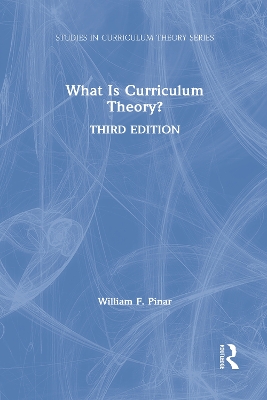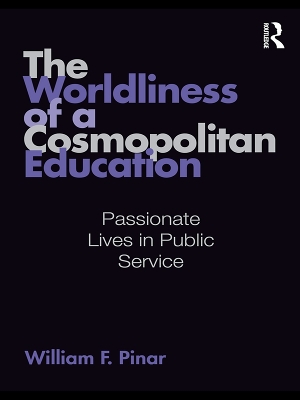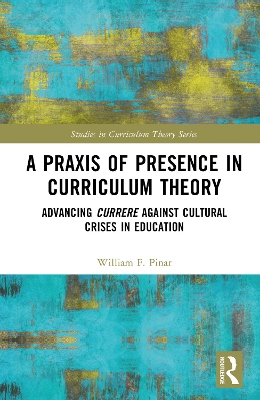Studies in Curriculum Theory
3 total works
This primer for prospective and practicing teachers asks students to question the historical present and their relation to it, and in so doing, reflect on their own understandings of what it means to teach, to study, to educate, and to become educated in the present moment in the places we inhabit.
Not only the implementation of objectives to be assessed by standardized tests, curriculum is communication among older and younger generations, informed by academic knowledge, and characterized by educational experience. Pinar’s concept of currere–the Latin infinitive of curriculum–is invoked to provide an autobiographical method for self-study, enabling both individuals and groups to understand teaching as passionate participation in the complicated conversation that is the curriculum.
New to the Third Edition:
- A new allegory-of-the-present: the Harlem Renaissance
- New section on technology
- New section on the future of curriculum
- Expanded section on Freedom Schools
- Educators depicted as truth-tellers in this "post-truth" era of "fake news"
Provocative, compelling, and controversial, What Is Curriculum Theory? remains indispensable for scholars and students of curriculum studies, teacher education, educational policy, and the foundations of education.
Pinar positions himself against three pressing problems of the profession:
- the crime of collectivism that identity politics commits,
- the devaluation of academic knowledge by the programmatic preoccupations of teacher education, and
- the effacement of educational experience by standardized testing.
A cosmopolitan curriculum, Pinar argues, juxtaposes the abstract and the concrete, the collective and the individual: history and biography, politics and art, public service and private passion. Such a curriculum provides passages between the subjective and the social, and in so doing, engenders that worldliness a cosmopolitan education invites. Such worldliness is vividly discernible in the lives of three heroic individuals: Jane Addams (1860-1935), Laura Bragg (1881-1978), and Pier Paolo Pasolini (1922-1975). What these disparate individuals demonstrate is the centrality of subjectivity in the cultivation of cosmopolitanism. Subjectivity takes form in the world, and the world is itself reconstructed by subjectivity's engagement with it.
In this intriguing, thought-provoking, and nuanced work, Pinar outlines a cosmopolitan curriculum focused on passionate lives in public service, providing one set of answers to how the field accepts and attends to the inextricably interwoven relations among intellectual rigor, scholarly erudition, and intense but variegated engagement with the world.
Building on his seminal methodological contribution to the field – currere – here William F. Pinar posits a praxis of presence as a unique form of individual engagement against current cultural crises in education.
Bringing together a series of updated essays, articles, and new writings to form this comprehensive volume, Pinar first demonstrates how a praxis of presence furthers the study of curriculum as lived experience to overcome self-enclosure, restart lived and historical time, and understand technology through a process of regression, progression, analysis, and synthesis. Pinar then further illustrates how this practice can inform curricular responses to countering presentism, narcissism, and techno-utopianism in educators’ work with "digital natives."
Ultimately, this book offers researchers, scholars, and teacher educators in the fields of curriculum theory, the sociology of education, and educational policy more broadly the analytical and methodological tools by which to advance their understanding of currere, and in doing so, allows them to tackle the main cultural issues that educators face today.


